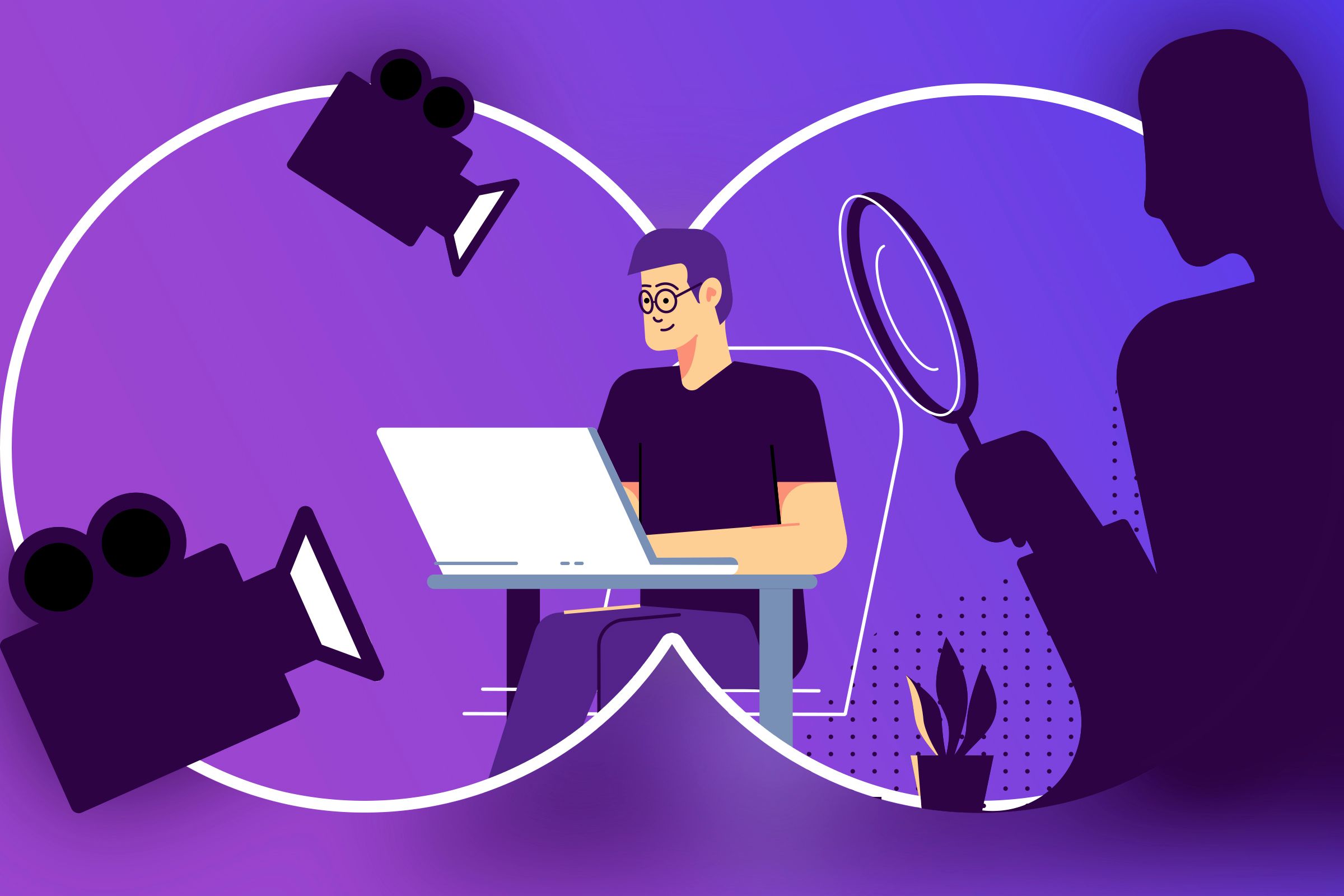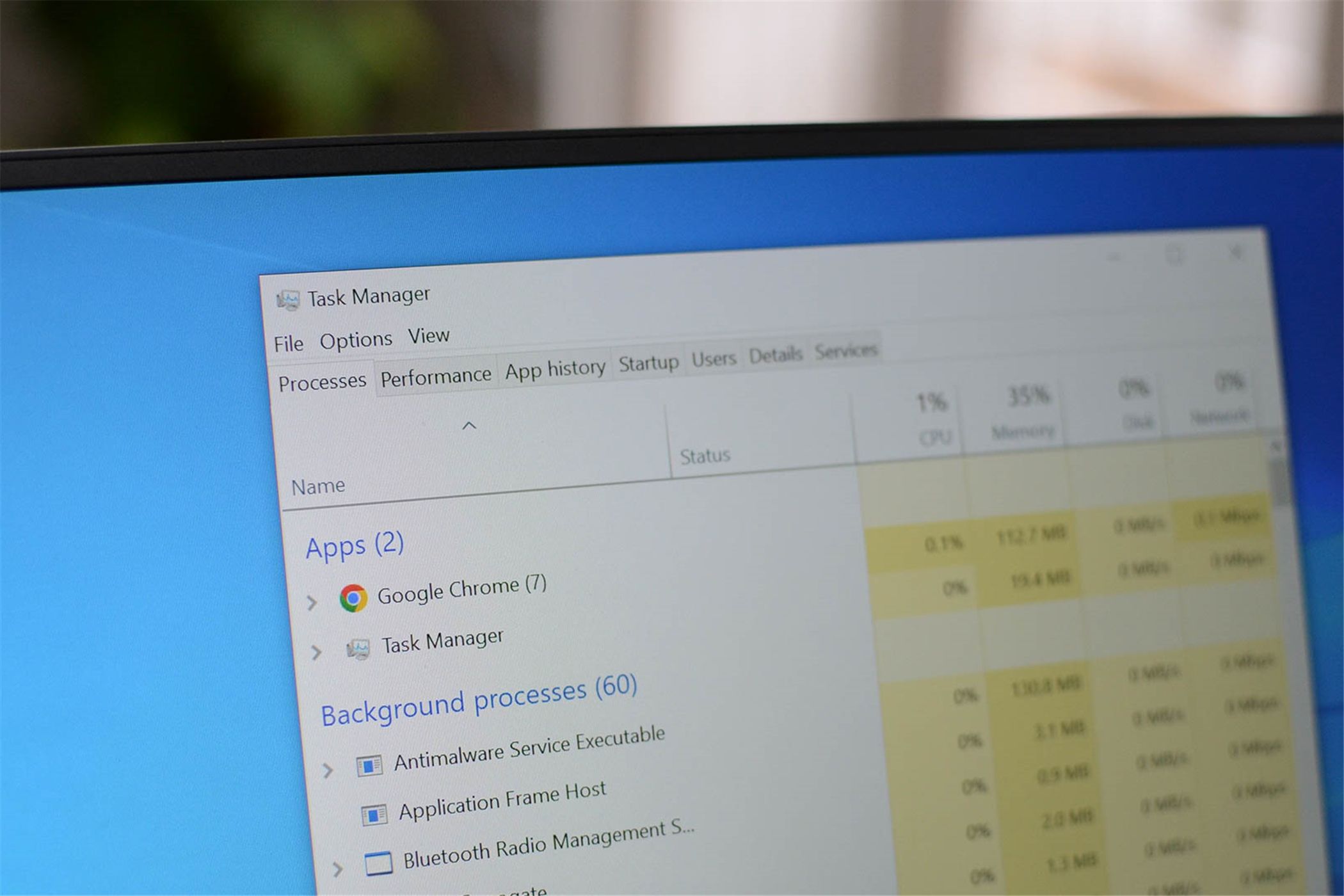
How Can You Tell If Your Boss Is Watching Your Every Move Online?

How Can You Tell If Your Boss Is Watching Your Every Move Online?
Quick Links
- What’s Employer Monitoring, Anyway?
- Is Monitoring Employees Legal?
- How to Tell If Your Employer Is Monitoring You
- Is This Sort of Thing Ethical?
- What’s the Best Approach If You Think You’re Being Monitored
- Know Your Rights
Have you ever felt like someone is monitoring you while you’re sitting at your desk? We’re not talking about Bob from accounting, but your employer. Corporate monitoring is on the rise. Here’s how to tell if they’re scoping you out.
Information presented here is not intended as legal advice, merely to inform the reader about the types of monitoring they might encounter.
What’s Employer Monitoring, Anyway?
By now, most people assume that their employers are monitoring their online presence and social media interactions. However, in some cases, this monitoring goes even further. Some employer monitoring solutions offer granularity in the data they record from employees, including keystroke loggers (keyloggers) and all internet traffic going to or coming from a particular device. While you can detect and remove a keylogger from your own PC , you shouldn’t attempt to do so with a work PC.
Some corporate enterprises have entire sections of their IT department dedicated to analyzing incoming and outgoing internet traffic. Despite how that sounds, it isn’t nefarious in most cases, but monitoring solutions will pick up when you use the business’s internet to visit personal sites, and may even log your passwords to those sites.
Cybersecurity is one of the major concerns for businesses today, and monitoring internet traffic is one way they can get an early clue to a security breach. However, some companies use employer monitoring of computer and internet usage to increase productivity and reduce employee downtime. While most companies have a policy for their data collection from employees, others don’t make it known that they’re monitoring their employees’ internet usage. That’s a shame, since staff awareness is one of the three pillars of cybersecurity . If you’re an employee, that should make you wary.
Is Monitoring Employees Legal?

Lucas Gouveia / How-To Geek | Melnikov Dmitriy / Shutterstock
The right to privacy is enshrined in the US Constitution , but employers have considerable wiggle room when it comes to monitoring their employees. In general, if a company’s employing you, you should assume that once you’re using their equipment, at the office, or otherwise on their property, they have the right to monitor what you do and say. That includes your internet usage.
In 1986, the Electronic Communications Privacy Act (ECPA) was passed, and it introduced a few boundaries on what employers can legally track. It allows employers to read your sent emails and monitor your communication without having to tell you they’re doing so. It also allows them to track employees (with consent) but this is murky since this tracking may infringe on the employee’s personal communications. Most importantly, it states that all monitoring should be within reason.
If you didn’t read the fine print in your contract, now would be a good time to go over it again. In that fine print, the company may have informed you about their monitoring and logging and might have even included a clause to allow them to track you even further . The only way you’ll know for sure is to reread the contract and note anything that mentions employer monitoring. In case you’re wondering how your employer might be monitoring you, here’s how you can check.
How to Tell If Your Employer Is Monitoring You

Jason Fitzpatrick / How-To Geek
Monitoring can happen on a PC or a mobile device, like a phone or tablet. Some companies issue a phone to their employees, and it usually comes preloaded with applications. If you skim through your work-issued phone and see applications that you’ve never seen before on your own phone, you should do a quick internet search to see what they do.
The same is true for applications running in the background of your work computer. If you’re running a Windows device, you can check the running applications by right-clicking on the taskbar and selecting Task Manager. From there, you’ll get an overview of what applications are running on the machine. Use the internet to search for any suspicious applications that you haven’t noticed before.
Another telltale sign of monitoring is slow internet or application performance. Many of these monitoring tools read what’s going on in the operating system and log it for future perusal by the employer. To do so, they will need to intercept things like input from the user and output from the program. If you find that there’s a huge lag between typing and letters showing up on your screen, you might have a keylogger installed. If you find simple web pages like Google take ages to load through a fast connection, something may be monitoring your internet traffic.
Is This Sort of Thing Ethical?
As with most things in corporate enterprises, employee monitoring has to strike a balance. Businesses can have plenty of legitimate reasons for monitoring their employees’ actions, but the ethical thing is to always inform those employees clearly and transparently.
Legally, these businesses are within their rights to monitor employees, but they can only do so “within reason,” as the ECPA states. So, tracking your internet usage while in the office or using their hardware falls under this broad scope, but installing GPS trackers on your personal phone is overreach .
What’s the Best Approach If You Think You’re Being Monitored

The very first thing you should do is consult your contract as we mentioned previously, especially the fine print. Clauses that allow employers to track your actions and movements outside of work or while you’re not using the company’s resources are a huge red flag. The same goes for clauses that give them the right to track you in other ways.
Ideally, to avoid being tracked, use your personal devices instead of those issued by the company for your personal interaction and social media usage. If you’re really concerned, avoid using the company’s Wi-Fi entirely, since all data that passes through the intranet will be visible to corporate IT teams.
You may be tempted to use your personal device on the company’s Wi-Fi with a VPN installed , since VPNs reduce the amount of information that IT can detect. We can’t recommend that. Corporate networks are frequently targeted by malicious hackers, and the last thing IT needs is someone’s personal device opening up attack vectors. There are also VPNs that will work on employer devices, but using them may breach the company policy, so it’s best to avoid that option, too.
To bypass rudimentary keyloggers, you can always try implementing a voice-to-text solution or voice search. However, since this data is still passing through the company’s servers, the queries and all search information will still be openly visible to the corporate IT team.
Remember, before trying to disable or bypass monitoring measures on an employer-issued device, doing so may be against the company’s security policy. Following through with this would cause a violation of company rules and may lead to disciplinary actions or even termination. That’s why we don’t advise messing with the device settings or trying to install VPN software on your work devices.
Know Your Rights
As an employee, a company has a right to monitor your communications in its best interests, especially when you’re using their devices or their network, but you also have rights of your own. Be aware of what data you allow the company to collect. When in doubt, you should treat your online activities during work hours with the same kind of professionalism you might a conversation with your boss.
Also read:
- [New] 2024 Approved Comprehensive Analysis of Top 6 HDMI-Enabled Monitors
- [New] Audience-Centric Approaches to Voiceover on Slides
- [New] Pinnacle Studios Evaluation An In-Depth Study
- [Updated] 2024 Approved Easy Editing - Unlimited Canon LUT Choices
- 2024 Approved Interactive Narratives Basics and Beyond
- Digital Canvas Enhancement Effortless Image Text Edits
- Dive Into Action Footage Selecting Top-Notch Cams Addons for 2024
- The Path to Insta Prominence Unveiling 9 Key Moves for Fame Seekers for 2024
- Updated Applications for Adding Audio to Video in Android
- Title: How Can You Tell If Your Boss Is Watching Your Every Move Online?
- Author: Edward
- Created at : 2025-01-14 19:37:44
- Updated at : 2025-01-17 16:11:33
- Link: https://vp-tips.techidaily.com/how-can-you-tell-if-your-boss-is-watching-your-every-move-online/
- License: This work is licensed under CC BY-NC-SA 4.0.